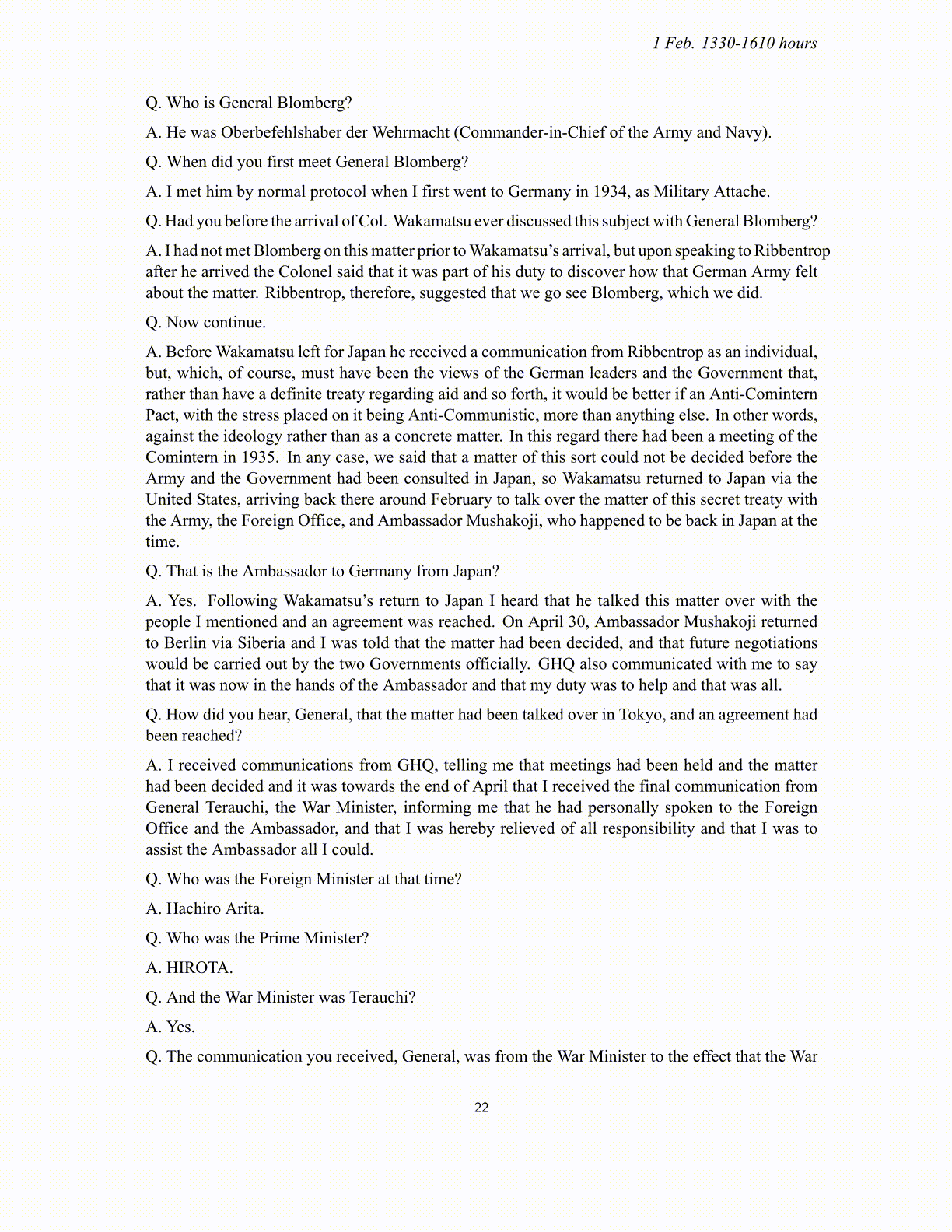
1 Feb. 1330-1610 hours Q. Who is General Blomberg? A. He was Oberbefehlshaber der Wehrmacht (Commander-in-Chief of the Army and Navy). Q. When did you first meet General Blomberg? A. I met him by normal protocol when I first went to Germany in 1934, as Military Attache. Q. Had you before the arrival of Col. Wakamatsu ever discussed this subject with General Blomberg? A. I had not met Blomberg on this matter prior to Wakamatsu’s arrival, but upon speaking to Ribbentrop after he arrived the Colonel said that it was part of his duty to discover how that German Army felt about the matter. Ribbentrop, therefore, suggested that we go see Blomberg, which we did. Q. Now continue. A. Before Wakamatsu left for Japan he received a communication from Ribbentrop as an individual, but, which, of course, must have been the views of the German leaders and the Government that, rather than have a definite treaty regarding aid and so forth, it would be better if an Anti-Comintern Pact, with the stress placed on it being Anti-Communistic, more than anything else. In other words, against the ideology rather than as a concrete matter. In this regard there had been a meeting of the Comintern in 1935. In any case, we said that a matter of this sort could not be decided before the Army and the Government had been consulted in Japan, so Wakamatsu returned to Japan via the United States, arriving back there around February to talk over the matter of this secret treaty with the Army, the Foreign Office, and Ambassador Mushakoji, who happened to be back in Japan at the time. Q. That is the Ambassador to Germany from Japan? A. Yes. Following Wakamatsu’s return to Japan I heard that he talked this matter over with the people I mentioned and an agreement was reached. On April 30, Ambassador Mushakoji returned to Berlin via Siberia and I was told that the matter had been decided, and that future negotiations would be carried out by the two Governments officially. GHQ also communicated with me to say that it was now in the hands of the Ambassador and that my duty was to help and that was all. Q. How did you hear, General, that the matter had been talked over in Tokyo, and an agreement had been reached? A. I received communications from GHQ, telling me that meetings had been held and the matter had been decided and it was towards the end of April that I received the final communication from General Terauchi, the War Minister, informing me that he had personally spoken to the Foreign Office and the Ambassador, and that I was hereby relieved of all responsibility and that I was to assist the Ambassador all I could. Q. Who was the Foreign Minister at that time? A. Hachiro Arita. Q. Who was the Prime Minister? A. HIROTA. Q. And the War Minister was Terauchi? A. Yes. Q. The communication you received, General, was from the War Minister to the effect that the War 22